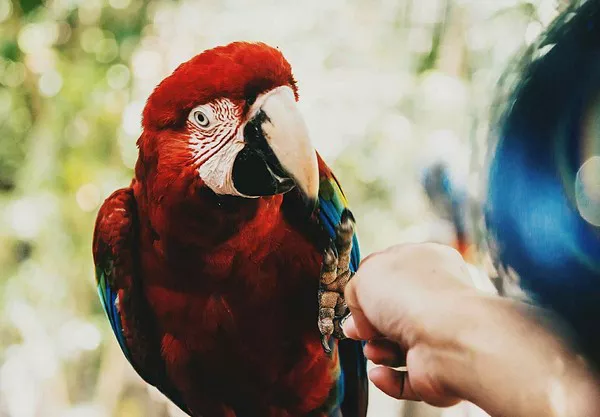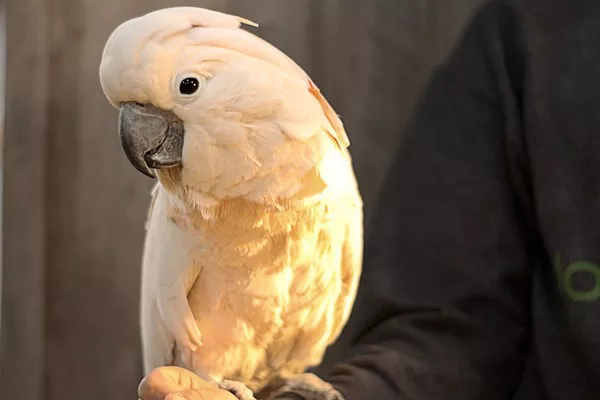Guinea pigs, or cavies, are beloved pets for many families due to their gentle nature, sociability, and adorable appearance. These small rodents are commonly kept as companion animals in homes across the world, providing joy and companionship to their owners. However, one question that often arises among prospective guinea pig owners is whether guinea pigs smell like rats. This concern typically stems from the fact that guinea pigs, like all animals, produce odors that may or may not be pleasant. Understanding the source of these odors, how to care for guinea pigs properly, and the differences between guinea pigs and rats when it comes to scent is important for pet owners who want to ensure that their pets remain healthy, clean, and pleasant to live with.
In this article, we will explore the factors that contribute to a guinea pig’s odor, how it differs from the smell of rats, and tips on how to minimize unpleasant odors. By the end, you’ll have a better understanding of how to maintain a fresh and healthy environment for your guinea pig.
The Origins of Odor in Guinea Pigs
To understand whether guinea pigs smell like rats, it’s essential first to explore why guinea pigs have a distinctive odor. All animals produce smells due to various biological and environmental factors. For guinea pigs, several aspects of their biology, care, and living conditions contribute to the way they smell.
1. Natural Body Odor
Like all living creatures, guinea pigs have natural body odors that are produced by their skin and fur. This scent can be faint and musky, depending on the individual guinea pig. Just like how humans have unique natural scents, each guinea pig’s body odor will differ slightly, but it’s generally not overpowering. In fact, guinea pigs are generally considered to have a mild scent that is not unpleasant, provided they are kept clean and well-cared-for.
However, guinea pigs, unlike some other pets, do not have sweat glands. Instead, they release moisture through their paws. This means they won’t sweat like humans or even dogs. The absence of sweat glands means that their scent is less likely to be strong in the same way that a dog’s can be. However, guinea pigs have scent glands near their anus that are used for marking territory, and these glands can emit a stronger odor if they become overactive.
2. Diet and Digestion
A guinea pig’s diet can have a significant impact on the way it smells. Guinea pigs are herbivores, and their diet primarily consists of hay, vegetables, and a small amount of fruit. When guinea pigs consume a lot of fresh vegetables or food that is high in fiber, their digestive system works overtime, and the byproducts of this process can contribute to their scent.
In particular, guinea pigs produce a lot of gas as part of their digestion, which can lead to a faintly unpleasant odor in their urine and feces. If your guinea pig is fed a varied diet with fresh produce and plenty of hay, you might notice a smell in the cage. This is typical, but it can be minimized with good cleaning habits and proper diet adjustments.
3. Urine and Feces
One of the most common causes of unpleasant odors in guinea pigs comes from their urine and feces. Guinea pig urine tends to have a strong, pungent odor due to the high level of calcium in their diet. When guinea pigs urinate, the ammonia content in their urine can become quite concentrated, creating an unpleasant smell, especially in confined spaces like a cage. Additionally, guinea pig feces can emit a strong odor if not cleaned up promptly. As with other pets, the key to minimizing these odors is regular cage cleaning and proper hygiene.
4. Male Guinea Pigs and Scent
Male guinea pigs, especially those that have not been neutered, may have a stronger odor compared to females. This is due to the scent glands found around their genital region, which are more active in males. These glands secrete a musky scent, which is often used for marking territory. Neutering a male guinea pig can help reduce this scent and make them less likely to produce strong odors.
Guinea Pig vs. Rat Odor: How Do They Compare?
While guinea pigs are known to have a mild, musky odor, rats are often associated with a more pungent smell. Although both are small rodents, the differences in odor between guinea pigs and rats can be attributed to their biology, diet, and overall care. Understanding these distinctions will help clarify whether guinea pigs smell like rats.
1. Rat Natural Body Odor
Rats, like guinea pigs, produce natural body odors, but these can be more noticeable due to their different body types and living habits. Rats have a higher body temperature than guinea pigs, and they produce more sweat. In addition, rats have specialized scent glands that can emit strong, musky smells. These glands are particularly active when rats are stressed or marking territory.
Rats are also more likely to develop odors related to their skin and fur. If rats are not cleaned regularly, oils and dirt can build up on their fur, leading to a stronger odor. Additionally, rats tend to produce more oils from their skin than guinea pigs, which can result in a noticeable smell in their living space.
2. Urine and Feces in Rats
Rats also produce a strong smell from their urine and feces. Their urine can have an ammonia-like odor that can become quite strong if not cleaned up regularly. Because rats have a faster metabolism than guinea pigs, they also urinate and defecate more frequently, which contributes to the stronger scent. This is one of the primary reasons why rats are often perceived as having a more intense smell compared to guinea pigs.
3. General Care and Grooming
One of the most significant factors influencing the smell of both guinea pigs and rats is their level of care and grooming. Rats, especially those kept in less-than-ideal conditions, are more likely to develop a strong odor due to their high metabolic rate and tendency to urinate frequently. Rats also require more frequent cleaning of their cages and bedding, as they tend to generate more waste than guinea pigs.
In contrast, guinea pigs, while they do produce odor, are generally easier to manage in terms of scent if their cages are cleaned regularly, and their diet is properly balanced. While rats may smell stronger if not cared for appropriately, guinea pigs are typically considered to have a milder odor that is more easily controlled.
How to Minimize Odor in Guinea Pigs
If you want to keep your guinea pig smelling fresh and pleasant, there are several simple steps you can take to ensure their living environment stays clean. Here are some tips for managing guinea pig odor:
1. Regular Cage Cleaning
One of the most important factors in minimizing guinea pig odor is keeping their cage clean. Guinea pigs are prone to urinating in the same spots, so it’s essential to clean their bedding, litter, and any soiled areas at least once or twice a week. This will prevent odors from accumulating in the cage. For particularly messy guinea pigs, daily spot cleaning may be necessary.
Use absorbent bedding materials, such as paper-based or wood-based products, which help control odor and absorb moisture. Avoid using cedar or pine bedding, as these can emit strong scents that irritate guinea pigs’ respiratory systems.
2. Proper Diet and Hydration
A healthy, balanced diet plays a significant role in the smell of your guinea pig. Ensure that your guinea pig receives fresh hay, a variety of vegetables, and a small amount of fruit. Avoid feeding them too many sugary foods, as these can contribute to gastrointestinal issues and bad odors.
Hydration is also important, as a dehydrated guinea pig may have stronger-smelling urine. Ensure that your guinea pig has access to fresh water at all times.
3. Grooming and Bathing
While guinea pigs do not require frequent bathing, regular grooming is essential for keeping them clean and reducing odor. Brush your guinea pig’s fur to remove loose hair and debris. This will help prevent the buildup of oils in their coat. Occasionally, you can give your guinea pig a gentle bath using a pet-safe shampoo, especially if they get particularly dirty. However, be sure to dry them thoroughly afterward.
4. Neutering Male Guinea Pigs
If you have a male guinea pig, neutering can significantly reduce strong odors caused by scent glands. Male guinea pigs who have not been neutered tend to mark their territory more often and have a musky smell due to their scent glands. Neutering can reduce these odors and improve the overall cleanliness of your pet.
5. Ventilation and Airflow
Make sure that your guinea pig’s living area is well-ventilated to reduce the buildup of odors. Fresh airflow will help disperse any lingering smells and keep your guinea pig’s environment more comfortable.
Conclusion
In conclusion, guinea pigs do not smell like rats. While both animals are rodents, guinea pigs tend to have a milder, less intense odor than rats, especially when kept in proper conditions. The smell of a guinea pig is typically due to its diet, waste, and natural body odor, which can be easily managed with regular cleaning, grooming, and care. On the other hand, rats are often associated with stronger odors, particularly due to their high metabolism, frequent urination, and natural body oils.
By maintaining a clean and healthy living environment for your guinea pig, you can keep unpleasant smells at bay and ensure that your pet remains a pleasant companion. While both guinea pigs and rats require regular care, guinea pigs are generally less odorous than rats, and with the right precautions, they can be a joy to have around without overwhelming your living space with unwanted smells.
Related Topics:



















